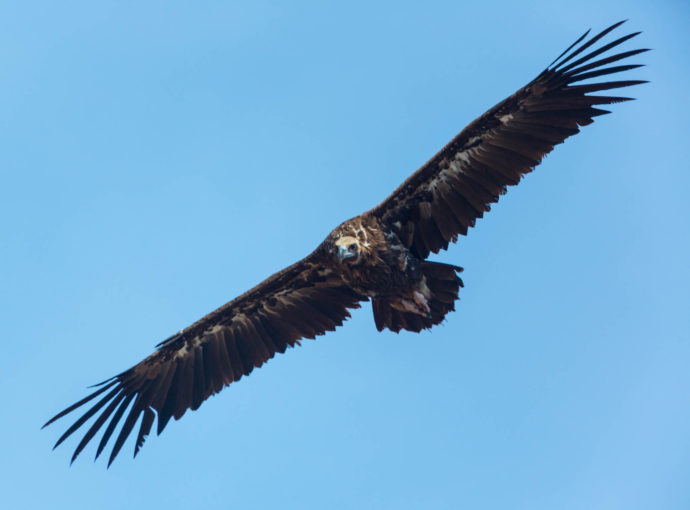Despite its catastrophic impact on Asian vulture populations in the 1990s, veterinary diclofenac is still used and marketed in countries such as Spain and Italy. The Vulture Conservation Foundation, a partner of Rewilding Europe in the LIFE Vultures project in the Rhodope Mountains rewilding area, has launched a campaign to ban its use in Europe.

Asia leads the way
Over the course of the last few centuries, persecution (through hunting and particularly poisoning) has taken its toll on populations of scavenger species across Europe. More recently, legal protection, habitat restoration and species-specific restoration measures has led to a gradual recovery of many of these species.
Unfortunately, unintentional lead poisoning and the use of veterinary drugs has also had a serious impact on scavenger populations. During the 1990s, the treatment of domestic livestock with diclofenac, an anti-inflammatory and analgesic drug, led to a dramatic collapse in many South Asian vulture populations.
Veterinary diclofenac is a drug used to treat livestock like cows and pigs; when livestock carcasses are left in nature, vultures feed on them, ingest the diclofenac, and are poisoned and die. A dose of just 0.1–0.2 mg/kg body weight can induce rapid, lethal kidney failure in the birds.
In 2010, thanks to efforts by Birdlife International, the sale of diclofenac was banned across the South Asia region. India (whose vulture numbers fell from over 40 million to just 60,000 in a few years), Pakistan, Nepal and Bangladesh have all planned or placed heavy restrictions on the drug. Meloxicam, an alternative and non-toxic drug, is increasingly used as an alternative.
Despite clear evidence of the destructive impact of veterinary diclofenac, and moves to ban it in Asia, the drug is still on the market in European countries such as Spain and Italy. According to the European Medicines Agency, complete withdrawal of the marketing authorisations of diclofenac in such countries is the only way that the risk to vulture populations can be removed.
European vultures need your help!
The Zurich-based Vulture Conservation Foundation, in collaboration with BirdLife Europe and Central Asia, SEO/BirdLife, SPEA (the Portuguese Society for the Study of Birds) and WWF, is now re-launching a campaign calling for the ban of veterinary diclofenac in Europe. The campaign, which is supported by Rewilding Europe, will largely focus on Spain, Italy and Portugal, where the majority of European vultures are resident. Spain alone is home to 95% of the European vulture population, with around 50,000 griffon vultures, more than 4,000 Eurasian black vultures, 3,000 Egyptian vultures and 250 bearded vultures.
Rewilding Europe calls on organisations and individuals to sign the petition to ban veterinary diclofenac in Europe. We have already signed this.
More information on the impact of veterinary diclofenac on vultures can be found here, while a short video on the current campaign to ban the drug can be viewed below:
